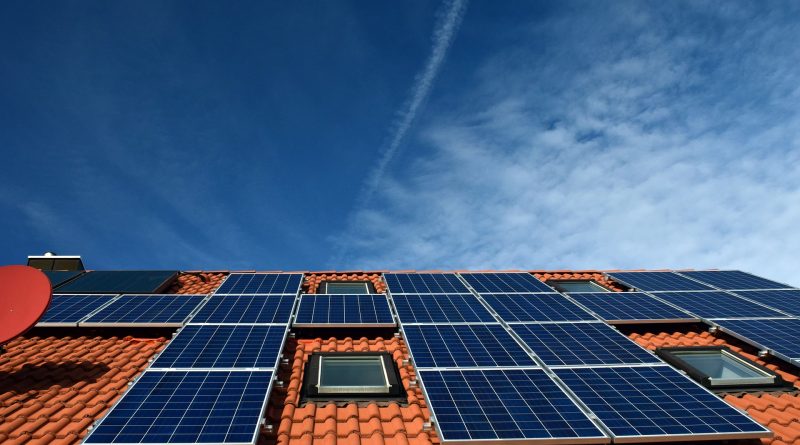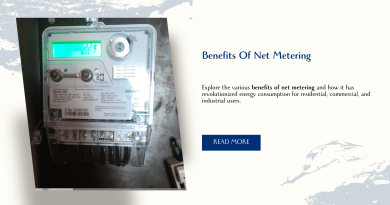Cost of 1 kWh Solar Grid in India: Explained
Solar energy is gaining popularity around the world as a clean and sustainable source of power. In India, with its abundant sunshine, solar energy is particularly well-suited for generating electricity. The cost of installing solar grids in India plays a crucial role in determining the viability and affordability of solar energy for consumers. In this blog, we will explore the various factors that influence the cost of 1 kWh solar grids in India and provide valuable insights for those considering solar energy as an alternative power source.
Table of Contents
Factors Affecting the Cost of 1 kWh Solar Grids in India
1. Solar Panel Efficiency
The efficiency of solar panels is a key factor in determining the cost of solar energy. Higher efficiency panels produce more electricity per square meter, allowing for a smaller installation footprint. While more efficient panels tend to be more expensive, they can lead to long-term cost savings due to increased energy generation.
2. Quality of Solar Panels
The quality of solar panels directly impacts their performance and longevity. High-quality panels tend to have higher initial costs but can provide more reliable and efficient energy generation over their lifespan. Investing in top-quality panels ensures that your solar grid is durable and maximizes the return on your investment.
3. Scale of the Installation
The cost of solar grids varies depending on the size of the installation. Larger installations generally have lower costs per kilowatt-hour (kWh) due to economies of scale. For larger solar plants, developers can negotiate better prices for raw materials, labor, and operational maintenance, resulting in a lower cost for consumers.
4. Type of Solar Grid
There are different types of solar grids available in the market, including on-grid, off-grid, and hybrid systems. On-grid systems are connected to the electricity grid and allow excess generation to be fed back into the grid, enabling consumers to earn money through net metering. Off-grid systems, on the other hand, are self-sufficient and require energy storage solutions such as batteries. Hybrid systems combine the advantages of both on-grid and off-grid systems. The cost of each type of solar grid varies, with on-grid systems generally being more cost-effective due to the absence of additional storage infrastructure.
5. Government Policies and Incentives
The Indian government has introduced several policies and incentives to promote the adoption of solar energy. Initiatives such as the Solar Energy Corporation of India (SECI) and the National Solar Mission have enabled solar project developers to access affordable financing options, reduced taxes, and subsidies on equipment. Reductions in customs duty on solar panels and modules have further contributed to decreasing costs. These policies and incentives make solar grids more affordable and help in driving the overall cost of solar energy down.
Current Cost of 1 kWh Solar Grids in India
As of now, the average cost of installing a 1 kWh solar grid in India is around INR 5-6 ($0.067 – $0.080). However, it is important to note that this cost can vary depending on the geographical location, size of the installation, and the quality of components used. Smaller residential installations might have slightly higher costs due to limited economies of scale.
It is also worth mentioning that solar energy costs have been rapidly declining in recent years. This decline is primarily driven by increased production capacities, technological advancements, and government initiatives. Experts predict that the cost of solar energy will continue to decrease, making it an even more attractive option for consumers in the coming years.
Conclusion
Unlock the potential of solar energy with SolarClue®—your trusted partner in navigating the cost dynamics of a 1 kWh solar grid in India. Our expert insights and transparent approach guide you through the intricacies, helping you understand the factors influencing costs and government incentives available. With region-specific estimates and tailored solutions, SolarClue® empowers you to harness solar power efficiently. Explore financing options, high-quality components, and advanced monitoring systems for a seamless solar experience. From installation to maintenance, SolarClue® is committed to providing clarity, reliability, and sustainability in every step. Transform your energy landscape with SolarClue®—your gateway to affordable and eco-friendly solar solutions in India. Start your solar journey today!
Frequently Asked Questions
The cost is influenced by factors like solar panel efficiency, inverter quality, installation charges, and government incentives. SolarClue® provides transparent insights into these components.
Government incentives, like subsidies and tax benefits, significantly reduce the overall cost. SolarClue® guides you on leveraging these incentives to maximize savings.
No, it varies based on sunlight intensity, local regulations, and installation logistics. SolarClue® offers region-specific cost estimates, ensuring accuracy for your location.
The payback period depends on factors like energy consumption and government incentives. SolarClue® helps you calculate and understand the payback period for your investment.
Yes, SolarClue® provides solutions tailored to diverse residential spaces, ensuring efficient utilization of available space and resources.
Higher-quality panels may have a higher upfront cost but offer better efficiency and durability. SolarClue® assists you in finding the right balance between cost and performance.
Yes, SolarClue® collaborates with financial institutions to provide convenient financing options. We guide you through the process, making solar energy accessible to all.
Yes, SolarClue® offers advanced monitoring systems, allowing you to track energy production and consumption remotely. Our solutions empower you with real-time data for efficient management.
We provide detailed quotes, breaking down costs for panels, inverters, installation, and other components. SolarClue® believes in transparency to help you make informed decisions.
Absolutely. SolarClue® provides regular maintenance services to ensure optimal performance and longevity of your solar grid. We’re committed to keeping your investment in top shape.




